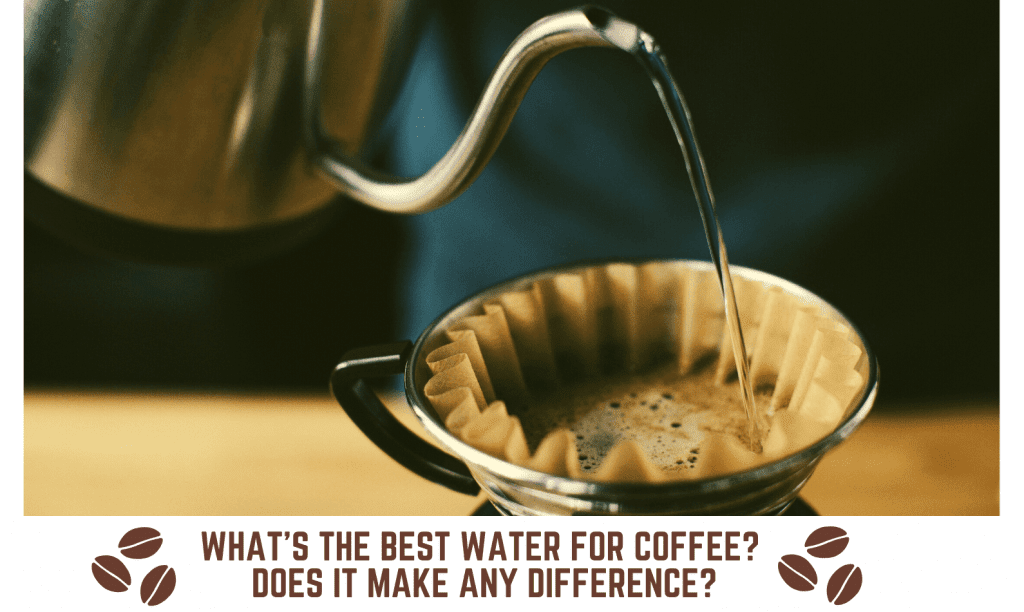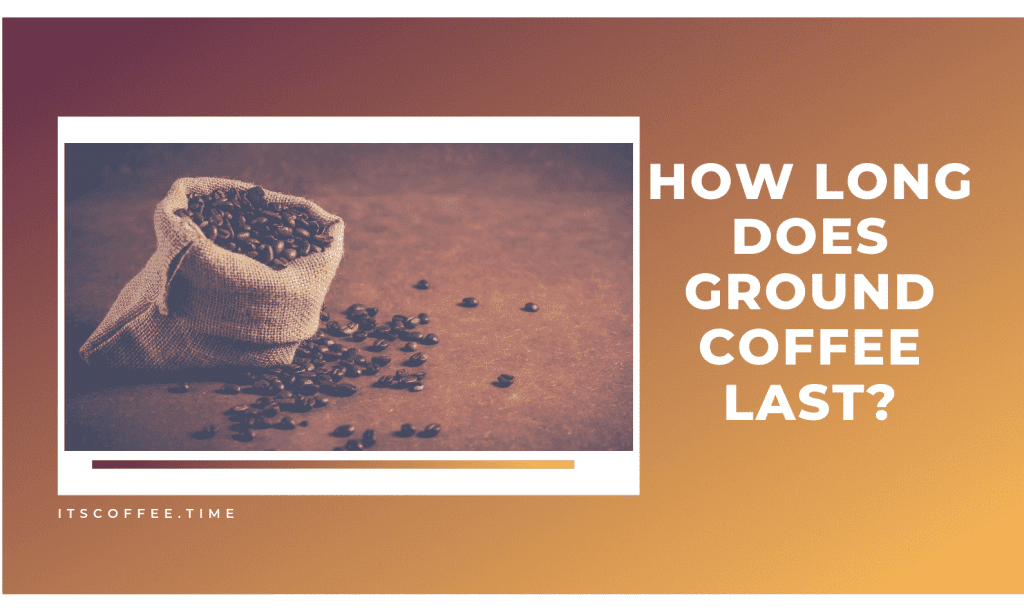What’s the Best Water for Coffee? Does It Make Any Difference? When it comes to making the perfect cup of coffee, we all know it’s important to choose high-quality beans and use a precise brewing method, but did you know that the type of water produced can also make a big difference? At the most basic level, water chemistry is not a big deal. The conventional wisdom of coffee is that if your water is good to drink, have a good taste for coffee. To some extent, this is true.
What is the best water for coffee? Since coffee is made up of 98% water, it is advisable to use non-distilled water containing some minerals. It should also be heated to the correct temperature between 195 and 205 degrees Fahrenheit.
We have highlighted different types of water here and included the benefits and negative consequences of each. Read on for a guide to help you choose the best water for your coffee needs!
Filtering Tap Water? What’s the Best Water for Coffee?
If you are not satisfied with the home water meter, the first option is to filter it. The SCAA water preparation guidelines state that the water must be clean, odorless, clear, and chlorine-free. Pitcher filters like Brita use activated carbon to remove some impurities from water, odors, and chlorine or chloramine if any. These filters are inexpensive and readily available; however, I have discovered that they have an annoying and limited capacity, are cumbersome to use, and have a constant need to replace the filter.
There are also filters mounted on a tap of this type. I’ve never used them, but it seems they may be a more feasible option. I use a Berkey water filtration system for all the home’s water consumption needs, which impressed me. Each filter lasts up to 3000 gallons, and the system has a large capacity (mine has 3 gallons).
Soft or Hard Water; Which One Is Better for Making Coffee?
It is strange to think that the water is sweet or hard; after all, many consider it wet. The difference in terms refers not so much to the physical experience of water but to what is inside it after careful examination. Water hardens when it contains excess calcium. When the water gets too hard, it can be harmful to your coffee maker. However, H2O with moderately high calcium or magnesium levels can actually improve Java flavors.
The good news is that most tap water is actually naturally hard. As a result, you may even use a special softener to filter out some extra minerals. If you want to experiment with this consideration, it is simply a matter of disabling the filter to see if you prefer that the water is fresh or hard. Just remember to reactivate the filter once the coffee has been prepared, as hard water can harm cardiovascular health over time.
Distilled and Purified Water for Making Coffee?
Speaking of distilled and purified water, there is actually a difference between the two. Distilled water is produced by boiling the contaminated water until it turns into steam. Many minerals and metals have a much higher boiling point than water (212°F), which means that they lag when water turns to steam.
Once the mineral-free steam condenses back into liquid water, it is officially distilled! The only problem with the water distillation process is that many water pollutants have a lower boiling point than water. These contaminants are also converted into steam together with water, which means they remain incorporated in the finished product of distilled water.
To truly eliminate all the contaminants from the water, you need to perform further steps besides distillation. Purified water starts as distilled water. To remove all the remaining contaminants, water purification offers a series of methods: coagulation and flocculation, sedimentation, filtration, and disinfection. Coagulation and flocculation involve the addition of positively charged chemicals to distilled water, which bind to negatively charged contaminants to form large contaminating particles called floc.
During the sedimentation process, the floc is deposited on the water’s bottom and can be removed. During the filtration process, water without floc flows through various filters to remove any residual dust, bacteria, and chemicals.
Finally, the disinfection process uses chemicals such as chlorine to remove the remaining organic pollutants. After all this, you are left with purified water!
If your taps produce hard, mineral-laden water but find that you prefer the taste of coffee brewed with fresh water, there are several ways to filter the water in your home to get the desired flavor of the coffee.
Bottled Water for Making Coffee?
It can be tempting to extract bottled water to give your coffee a much more artisan flavor. Doing so can be very effective. Other than that, you have to be very careful about how you do it.
Some bottled water products tend to fall on the acid side of the scale. This water will improve the natural acidity already present in coffee beans and create a bitter and totally unpleasant drinking experience.
Read more about How to Make Arabic Coffee at Home?
Alkaline water, on the other hand, tends to create a much more balanced alcohol consumption experience. Coffee that has been made with mineral water tends to have a slightly richer flavor. When buying mineral water, look for products that include magnesium or calcium. In addition to meeting a small part of your daily dietary needs, these minerals will also create the “hard water” effect that we talked about. The result should be a smoother and more pleasant brewing experience.
Use of Reverse Osmosis Water for Making Coffee
Reverse osmosis (RO) is a process in which all minerals are extracted from the water. What remains is water that contains practically nothing. You would think it would be ideal for making coffee, but it is not. The preparation with straight reverse osmosis water will produce a cup of flat coffee, not unlike the coffee prepared with fresh water.
Reverse osmosis water lacks all those magnesium and calcium minerals that improve the flavor of the coffee. There are, however, reverse osmosis mixing systems that mix again in mineral-rich water. Some of these systems have the ability to do the customization of the total dissolved solids level of your water. A mixture of reverse osmosis water is a viable option for excellent fermentation water. SCAA recommends 150 mg/L of total dissolved solids. If you don’t have a reverse osmosis system with mixing capability, you can mix the water yourself. Try different RO water ratios to touch the water and see if it improves the taste of coffee (20-25% of tap water is a good starting point).
Is Water Temperature Important for Perfect Cup of Coffee?
Now you know your options, but does the water temperature make a difference? It depends on who you ask. While it would be difficult to quantify the effect that water temperature can have on coffee flavor, there are a few trends to consider. It appears that most coffees favor room temperature water when making coffee. In fact, if you look at the labels on most coffee beans, we probably recommend using room temperature water.
The effect of following this recommendation will depend on the individual’s taste. There is no complete agreement on the optimal temperature of the water used before starting the brewing process. There is a common consensus: hot water is a no-go. This is mainly because hot water burns faster at the manufacturer, leaving minerals in the reserve tank.
Conclusion: What’s the Best Water for Coffee?
As you can see, something as simple as water can greatly impact the quality of your homemade coffee cup. Most people are content with using old tap water to brew coffee, but if you really want to personalize your perfect drink, it may be worth experimenting with different types of water.
Read more about Best Coffee Makers under $50 of 2022
Try to use harder or softer water, water more alkaline or more acid, distilled water, or purified water, or even wrap the third wave to calibrate your perfect cup of coffee!





